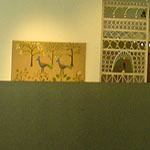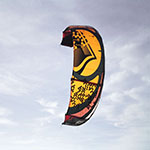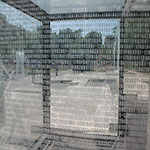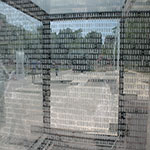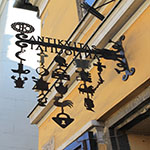Esplanade Zagreb Hotel
Mihanoviceva 1, Zagreb, 10000, Croatia Conference Room: The ClubConference program
- April 18, 2013
- 12:30 - 13:00Registration (Reception Desk)
- 13:00 - 13:30Welcome and Opening Remarks
- 13:30 - 14:30Opening Workshop: Identities and Identifications
- 14:30 - 15:00Coffee Break & Snack
- 15:00 - 17:00Panel 1– Performing Identity: The Relationship between Identity and Performance in Literature, Music, Theatre and the Performing Arts (Section One) Chair: Chrysochou Panayiota (The University of Edinburgh, UK)
- 17:00 - 17:30Coffee Break & Snack
- 17:30 - 19:30Panel 2 – Regions, Ethnicities, Religions and Practices of Identity Making (Section One) Chair: Emanuel Crudu (Euroacademia, Paris Office, France)
- 19:30 - 20:00Welcome Drink (Atrium)
- 20:00 - 21:00Diner – Zinfandel’s Restaurant – Esplanade Zagreb Hotel
- April 19, 2013
- 09:00 - 10:30Panel 3– Memory and Forgetting: The Politics of Group Identity Formation in Conflicts (Section One) Chair: Pinar Kadioglu (School of International Relations University of St Andrews, UK)
- 10:30 - 11:00Coffee Break & Snack
- 11:00 - 13:00Panel 4 – Critical Approaches to Understanding Identity Chair: Andrei Znamenski (The University of Memphis, USA)
- 13:00 - 14:00Lunch – Zinfandel’s Restaurant – Esplanade Zagreb Hotel
- 14:00 - 15:30Panel 5– Identities and the Cities: Urban Transformations, Transition and Change in Urban Image Construction Chairs: Tihana Puc and Ivana Nakikj ( IMT Institute for Advanced Studies Lucca, Italy )
- 15:30 - 16:00Coffee Break & Snack
- 16:00 - 17:30Panel 6– Performing Identity: The Relationship between Identity and Performance in Literature, Music, Theatre and the Performing Arts (Section Two) Chair: Chrysochou Panayiota (The University of Edinburgh, UK)
- 17:30 - 19:00Panel 7– External Constitution-Building and Ethnic Identity(ies): Between Norm and Exclusion. Looking for Alternatives Chair Nicasia Picciano (University of Flensburg, Germany)
- 19:00 - 21:00Optional Social Program: Dinner in a specific Croatian cuisine restaurant
- April 20, 2013
- 09:00 - 10:30Panel 8– Memory and Forgetting: The Politics of Group Identity Formation in Conflicts (Section Two) Chair: Pinar Kadioglu (School of International Relations University of St Andrews, UK)
- 10:30 - 11:00Coffee Break & Snack
- 11:00 - 12:30Panel 9 – Regions, Ethnicities, Religions and Practices of Identity Making (Section Two) Chair: Emanuel Crudu (Euroacademia, Paris Office, France)
- 12:30 - 13:30Lunch – Zinfandel’s Restaurant – Esplanade Zagreb Hotel
- 13:30 - 15:00Panel 10 – Identity in the Visual Chair: Daniela Chalániová (Anglo-American University, Prague)
- 15:00 - 15:30Coffee Brake & Snacks
- 15:30 - 17:00Panel 11 – The Politicization of the European Identity Chair: Davide Bradanini (Independent Scholar, Italy)
- 17:00 - 17:30Closing Session and Final Discussions
- 17:30 - 19:00Optional Social Program: Visit at the Croatian Museum of Contemporary Art
- April 18, 2013
Identities and Identifications: Politicized Uses of Collective Identities

- Conference Description
- Conference Panels
- Participant’s Profile
- Registration and Fee
- Social Activities and Publication
- Important Dates
- Venue and Directions
- Conference Program
- Panel 1
- Panel 2
- Panel 3
- Panel 4
- Panel 5
- Panel 6
- Panel 7
- Panel 8
- Panel 9
- Panel 10
- Panel 11
Identities and Identifications
Politicized Uses of Collective Identities
18-20 April 2013, Zagreb, Croatia
Esplanade Zagreb Hotel
Identity is one of the crown jewelleries in the kingdom of ‘contested concepts’. The idea of identity is conceived to provide some unity and recognition while it also exists by separation and differentiation. Few concepts were used as much as identity for contradictory purposes. From the fragile individual identities as self-solidifying frameworks to layered in-group identifications in families, orders, organizations, religions, ethnic groups, regions, nation-states, supra-national entities or any other social entities, the idea of identity always shows up in the core of debates and makes everything either too dangerously simple or too complicated. Constructivist and de-constructivist strategies have led to the same result: the eternal return of the topic. Some say we should drop the concept, some say we should keep it and refine it, some say we should look at it in a dynamic fashion while some say it’s the reason for resistance to change.
If identities are socially constructed and not genuine formations, they still hold some responsibility for inclusion/exclusion – self/other nexuses. Looking at identities in a research oriented manner provides explanatory tolls for a wide variety of events and social dynamics. Identities reflect the complex nature of human societies and generate reasonable comprehension for processes that cannot be explained by tracing pure rational driven pursuit of interests. The feelings of attachment, belonging, recognition, the processes of values’ formation and norms integration, the logics of appropriateness generated in social organizations are all factors relying on a certain type of identity or identification. Multiple identifications overlap, interact, include or exclude, conflict or enhance cooperation. Identities create boundaries and borders; define the in-group and the out-group, the similar and the excluded, the friend and the threatening, the insider and the ‘other’.
Beyond their dynamic fuzzy nature that escapes exhaustive explanations, identities are effective instruments of politicization of social life. The construction of social forms of organization and of specific social practices together with their imaginary significations requires all the time an essentialist or non-essentialist legitimating act of belonging; a social glue that extracts its cohesive function from the identification of the in-group and the power of naming the other. Identities are political. Multicultural slogans populate extensively the twenty-first century yet the distance between the ideal and the real multiculturalism persists while the virtues of inclusion coexist with the adversity of exclusion. Dealing with the identities means to integrate contestation into contestation until potentially a n degree of contestation. Due to the confusion between identities and identifications some scholars demanded that the concept of identity shall be abandoned. Identitarian issues turned out to be efficient tools for politicization of a ‘constraining dissensus’ while universalizing terms included in the making of the identities usually tend or intend to obscure the localized origins of any identitarian project. Identities are often conceptually used as rather intentional concepts: they don’t say anything about their sphere but rather defining the sphere makes explicit the aim of their usage. It is not ‘identity of’ but ‘identity to’.
The Euroacademia International Conference ‘Identities and Identifications: Politicized Uses of Collective Identities’ aims to scrutinize the state of the art in collective identities research, to bring once more into debate the processes of identity making, identity building in both constructivist or de-constructivist dimensions. It is the aim of the Euroacademia conference to open the floor for dynamic multi-dimensional and inter-disciplinary understandings of identities in their historic formation or in the way they shape the present and future of organizations or communities.
Euroacademia aims to bring together a wide network of academics, researchers, practitioners and activists that are willing to share and open to debate their research on identity related topics. Disciplinary, trans and inter-disciplinary approaches, methodological assessments and recommendations, single case studies or cross-sectional analyses, reflective essays, experience sharing or works addressing new puzzles are all welcomed.
The Euroacademia International Conference ‘Identities and Identifications: Politicized Uses of Collective Identities’ is organized yet by no means restricted to the following orientative panels:
- Welcome to the Land of Disputes: Theoretic Contributions to Understanding Identity
- Modernity and Identity
- Identities as Endogenous Factors in the Study of Organizations
- Critical Approaches to Understanding Identity
- Universal and Local in Identity Making
- Processes of Identity Building
- Practices of Identification
- Identity and Inclusion
- Identity and Exclusion
- The Politicization of the European Identity
- European Union and the Claims of an Emerging Supranational Identity
- America as a Soft Power: Attraction Through Identitarian Constructs
- Normative Powers and the Export of Identities
- Identity and the Power of Naming the Other
- In-Group – Out-Group Dynamics in Identity Formation
- Identities as Endogenous Factors in Explaining Political Behaviors
- Religion and Identities
- Imagined Communities: Preserving Identity as A Foreigner
- Art as an Identity Making Process
- Folklore and the National Identity Narratives
- History Reading and Identity Making
- Ideal and Real Multiculturalism: How Inclusive Our Societies Are?
- Regions and Identities
- East/West – North/South: Imaginary Geographies of Identities
- Core/Periphery Claims in Shaping Identities
- Nested Identities
- Identitarian Threats
- Symbols of Identities: Flags, Coins, Stamps and Anthems
- Cosmopolitanism and Supra-National Identities
- Film and the Visual Narration of identities
- Music and the Identitarian Signifiers
- Literature and Identities
- Groups, Gangs, Movements and Identities
- Protest and Identities
- Ethnicity and Identity
- Regional Integration Projects and Identity Appropriations
- Globalization and Identities
- Uses and Miss-uses of Identities for Political Purposes
- Organizations and Identities
- Markets, Products and Identities
- Consumerism and its Impact on Identity Building
- Corporate Identity
- Brand Identity
- Identity and Conflict
- Crises of Identity
However, if you are willing to propose and/or chair a particular panel we welcome you to do so until 15th of January 2013 in the Propose a Panel section on the conference website.
Participant’s Profile
The conference is addressed to academics, researchers and professionals with a particular interest related to the topic of collective identities from all parts of the world. Senior and junior researchers are equally welcomed. As the nature of the conference is intended to be multidisciplinary in nature, different academic backgrounds are welcomed.
Post-graduate students, doctoral candidates and young researchers are welcomed to submit an abstract. Representatives of INGOs, NGOs, Think Tanks and activists willing to present their work or projects with impact on or influenced by specific understandings of identities are welcomed as well to submit abstracts of their contributions.
Abstracts will be reviewed and the participants are selected based on the proven quality of the abstract. The submitted paper for the conference proceedings is expected to be in accordance with the lines provided in the submitted abstract.
The participation fee includes:
- the registration fee,
- participant’s package with all the materials for the conference
- a copy of the electronic volume
- access to Euroacademia discussion group and newsletters
- discounted rates for participation in the future Euroacademia conferences
- daily welcome coffee with snacks and unlimited conference drinks (water/sodas)
- coffee brakes with snacks for all the duration of the conference
- sparkling wine opening reception with snacks on 18th of April 2013
- a 4 course dinner on 18th of April 2013 at the 5* Zinfandel Restaurant of Esplanade Zagreb Hotel
- a 4 course lunch on 19th of April 2013 at the 5* Zinfandel Restaurant of Esplanade Zagreb Hotel
- a 4 course lunch on 20th of April 2013 at the 5* Zinfandel Restaurant of Esplanade Zagreb Hotel
- an optional guided visit at the Museum of Contemporary Art in Zagreb on Saturday http://www.msu.hr
- certificate of attendance
- optional social program.
A registration form will be sent to accepted participants that must be filled in and sent to [email protected] until 6th of March 2013 and until the 10th of March the payment of the participation fee through bank transfer is requested and considered as the final confirmation of attendance. No paper will be introduced in the program without confirmation and payment of the participant fee.
Please be aware that the final confirmation of attendance will be considered upon payment of the participation fee in the Euroacademia account:
Euroacademia
Credit Mutuel
IBAN: FR7610278060470002073210155
BIC: CMCIFR2A
PARIS 17 ETOILE, 30 AVENUE NIEL 75017 PARIS FRANCE
The participation fee can be paid only through bank transfer. A confirmation of receipt with the scanned invoice will be sent to you by e-mail and the original invoice will be delivered to you on site at the conference.
Unfortunately, Euroacademia has no available funds for covering transport and accommodation in Zagreb. Participants are responsible for finding funding to cover transportation and accommodation costs during the whole period of the conference. Official letters can be sent by Euroacademia to the financing institution to confirm the selection and participation in the conference upon request.
Social Activities and Publication
A specific spot in the conference program will be dedicated to social networking and therefore all the participants interested in setting or developing further cooperation agendas and prospects with other participants will have time to present and/or promote their project and express calls for cooperation.
A specific setting (Social Corner) for promotional materials connected with the topic of the conference will be reserved for the use of the participants. Books authored or edited by the participants can be exhibited and promoted during the whole period of the conference and can also be presented within the conference package based on prior arrangements.
An optional dinner and a social event will be organized for the second evening of the conference in a typical Croatian cuisine restaurant as optional program for the willing participants. The social dinner will be held based on participant’s confirmation and it costs 30 Euro to be covered by the participants individually.
Publication:
Selected papers will be published in an electronic volume with ISBN after the confirmation of the authors and a double peer-review process based on an agreed publication schedule. All the papers selected for publication should be original and must have not been priory published elsewhere. All participants to the conference will receive a copy of the volume.
| Important Dates | |
|---|---|
| 15 January 2013 | Deadline for Submitting Panel Proposals |
| 1 March 2013 | 300 words abstracts and details of affiliation |
| 3 March 2013 | Notification of acceptance |
| 6 March 2013 | Sending the participation form |
| 10 March 2013 | Payment of the conference fee |
| 25 March 2013 | Sending the draft paper to be uploaded on the web site of the conference |
| 1 April 2013 | Publication of the conference program and uploading the draft papers on the website |
| 18 April 2013 | The conference commences at 13.00 |
Venue and Directions
The conference will take place in the conference premises of the exclusive 5 stars luxury Esplanade Zagreb Hotel, centrally located in the heart of Zagreb, easily accessible from the historic center and within a walking distance from all the major tourist attractions. Esplanade Zagreb Hotel is an iconic trademark of Croatian luxury and exquisite services being rated by Tripadvisor as the No.1 hotel in Zagreb while the hotel’s restaurant Zinfandel is rated among the 100 Best Restaurants of the World by Gastro Guide Book. A combination of Art Deco with all the contemporary features, Esplanade Zagreb Hotel was built in 1925 as a stop for the passengers of the Orient Express and accommodated top class celebrities like Sir Laurence Olivier, Nikita Kruschev, Henry Kissinger, Louis Armstrong, Ella Fitzgerald, Orson Wells, Liv Ullman, Woody Allen and many others.
Esplanade Zagreb Hotel
Mihanoviceva 1, 10000 Zagreb
Croatia
Tel.: +385 (0)1 456 6600
Fax: +385 (0)1 456 6020
E-mail: [email protected]
Zagreb is a wonderful European city with a very rich history and a vivid passionate intellectual life; a place full of various and inspiring cultural events, sightseeing opportunities, great food, exquisite architecture and of course the city with a unique atmosphere gives anyone a chance for personal memories and reveries. Zagreb is a city of beautiful moments!
See full information about the conference Location & Map:
HERE
Conference participants are responsible for arranging the accommodation and travel. However, discounted rates for the ESPLANADE ZAGREB HOTEL can be arranged by organizers and announced to selected participants upon request.
Performing Identity: The Relationship between Identity and Performance in Literature, Music, Theatre and the Performing Arts (Section One)
Chair: Chrysochou Panayiota (The University of Edinburgh, UK)
- Or ‘The Others’ in Yael Dayans’ ProseThis lecture shall outline how the interactions of gender and various kinds of ‘otherness’ - intrinsic to the literary work of Yael Dayan - can promote particular performances and conceptions of Jewish as well as national (Israeli) constructions of identity.Viktoria Pötzl, University of Vienna, Austria
- The Language of Reification: Mediating Exilic Identities in Post-Yugoslavian LiteraturesIn this paper, I argue that the negotiation between worlds is realized in exilic literatures which moderate the ways in which language, despite the multiplicities of meaning it engenders, may be used as a self-reflexive testament of exile. My analysis will focus on David Albahari’s Bait, Dzevad Karahasan’s Sarajevo, Exodus of a City, and Dubravka Ugresic’s The Ministry of Pain.Jessica Ruzek, University of Lethbridge, Department of English, Canada
- Fragmented Worlds – Fragmented Identities: Destruction as a Tool for Politicized Uses of Marginal Identities in Goytisolo’s NarrativesThis paper has two central aims. In the first place, to analyze to what extend the non-lieu created in Goytisolo’s novel could be seen as a new European lieu de mémoire, a place that creates a European memory. And, in the second place, to answer the question whether and to what extent the destruction serves as a tool for politicized uses of marginal identities.Lydia Schmuck, University of Hamburg, Institute of Political Sciences, Germany
- From Brotherness to Otherness. Contemplations of Linguistic and Social Identity in Contemporary Slovenian LiteratureThe analysis demonstrates how language in this novel is first and foremost used as a tool of exclusion and therefore enables individuals to form groups by deciding whom to identify with and include and whom to exclude and differ from. Furthermore the impact of claimed and manifested identity is shown through the narration of failed linguistic integration.Mia Kumric, University of Tubingen, Germany
Regions, Ethnicities, Religions and Practices of Identity Making (Section One)
Chair: Emanuel Crudu (Euroacademia, Paris Office, France)
- The (Re)Construction of Identities in the Diaspora: Religion, Ritual and the ‘Ethnic Package’ of Immigrants from Guinea-Bissau in PortugalUsing as case study death rituals of immigrants from Guinea-Bissau in Portugal, this paper will expand on what takes place in the diaspora, and how the religious cognitive worlds and identities are reconstructed to accommodate a situation where people, goods and spirits travel across the ocean to act in people´s lives.Clara Saraiva, Institute for Tropical Research and Universida de Nova Lisboa, Portugal
- Living Together or Next to Each Others? Everyday Ethnicity in the Town of Chernivtsi in Western UkraineIn my presentation, I want to show why and when ethnicity matters for ordinary citizens of Chernivtsi and how it is connected with the existence of the so-called ‘cosmopolitan myth’ connected with the long, diverse and multicultural history of Bukovyna region and its belonging to the Austro-Hungarian Empire.Karolina Koziura, Central European University in Budapest, Hungary and Maria Curie-Sklodowska University in Lublin, Poland
- In Search of Identity: Burgenland-Croatian PerspectiveOur paper aims to give an insight into the strategies of identity construction in this Croatian community. The main issues we are dealing with are “collective” versus “individual” Burgenland Croatian identity, how this identity or these identities are constructed and what lies “beneath”. The corpus comprises materials collected when conducting a study on German-Croatian language contacts in Burgenland, notes and observations made in Burgenland.Aleksandra Scukanec, Faculty of Humanities and Social Sciences, Zagreb, , Croatia
- The Economic Crisis as a Platform for Developing Regional Identity Discourses in the Context of Spain. A Case Study of Andalusia and CataloniaThe present paper aims to analyze the reflexive relation between the regional identity discourse and the rhetorical references to the current economic crisis and social problems. Using the socio-constructivist theoretical approach and the methodological apparatus consisting of the content and critical discourse analysis I will investigate the basic strategies of categorization and identification included in the public speeches of selected Catalan and Andalusian politicians.Kamil Fleissner, University of Economics, Faculty of International Relations, Prague, Czech Republic
Memory and Forgetting: The Politics of Group Identity Formation in Conflicts (Section One)
Chair: Pinar Kadioglu (School of International Relations University of St Andrews, UK)
- Understanding the Role of Identity Within Processes of Remembrance Using Experimental Approaches in Social and Cognitive PsychologyBy acquiring a greater understanding of the factors involved in transmission of memorial renderings between individuals at a group identity level from an experimental psychological perspective, we hope to understand further the implications of these processes for conflict and its resolution.Alexander Griffiths, The MacLeod Lab, School of Psychology & Neuroscience, University of St Andrews, UKMalcolm D. MacLeod, University of St Andrews, UK
- Collective Memory, Identity and Inter-Group ConflictThe proposed paper aims to explore the extent to which individuals with a common sense of identification are influenced by transgenerational memories of trauma in the presence of intergroup bias and prejudice. Important considerations include the impact of regeneration of negative ‘other’ perceptions in the various generations constructed via transmission of conflict memories.Pinar Kadioglu, School of International Relations, University of St Andrews, UKAlexander Griffiths, The MacLeod Lab, School of Psychology & Neuroscience, University of St Andrews, UK
- Phantasy of Sameness of an Other: Impact of Imagination on Collective Memory in ConflictThe paper will suggest strong links between conflict (de)escalation and communication by exploring how groups make sense of the unknown (the new reality of intergroup conflict and its changing dynamics, or appearance of new groups) through known within intragroup communication.Dmitry Chernobrov, School of International Relations, University of St Andrews, UK
Critical Approaches to Understanding Identity
Chair: Andrei Znamenski (The University of Memphis, USA)
- Storytelling: The Virtuous Circle of Narrative Contributing to Identity Building and TransmissionI will emphasize that the individual shapes himself in relation to the other and to other people, relying on Ricoeur’s work. But at the same time, these different individuals constitute a same group and approve a common tale, constituted by elements that form the popular imagination. I will demonstrate that we are in a "narrative virtuous circle" at the disposal of the identity, both in its building and in its transmission. A virtuous circle formed by collective and individual narratives nourishing and building each other, to the benefit of collective and individual identity. Our question, concretely, how does story build individual identity?Raphaele Galmisch, University of Paris VIII, CEMTI Laboratory
- Groupuscular Identification In Informational Network of Estonian Far RightOur main contribution would be the complementation of the concept of groupuscule with the ideas of Tartu-Moscow school of cultural semiotics. By the essential theoretical frameworks of cultural semiotics – autocommunication and core/periphery – we would like to demonstrate the communication of different units of groupucsular network and the formation of temporary inter- and intra-groupuscular hierarchies.Andreas Ventsel, Tartu University, EstoniaMari-Liis Madisson, Tartu University, Estonia
- The Subject of Politics: The Non-Identificational Aspects of Occupy Wall StreetIn the paper I will examine how and if the protesters have managed to hold on to their non-identitarian, generic and evental positions. I will use the theories of Alain Badiou (especially the concept of ‘event’) and Giorgio Agamben (the biopolitical structure of inclusive exclusion). As an almost perfect example of emancipatory political movement, Occupy Wall Street could enable us to evaluate Badiou’s and Agamben’s concepts when put in an empirical context.Ott Puumeister, University of Tartu, Estonia
- Cosmopolitanism and World Culture as the Psychological Expressions of Supra-National IdentitiesWe claim that cosmopolitan tendencies are determined by the structure of our psyche and throughout this are the congenital aspirations of people all over the world and the basis for supra-national identities to form.Valerie Lazarenko, Kiev National University, Ukraine
- ‘Theology’ of Liberty: Identity Politics to Methodological IndividualismI argue that we need a qualitative intellectual leap, moving away from methodological nationalism to a new mode of thinking, which for the sake of an argument I metaphorically label ‘theology’ of liberty - a healthy bias in favor of individual liberty. I argue that part of the problem is that Western social scholars and policy makers continue thinking in the 20th-century categories of ‘big is beautiful’(statism and collectivism).Andrei Znamenski, The University of Memphis
Identities and the Cities: Urban Transformations, Transition and Change in Urban Image Construction
Chairs: Tihana Puc and Ivana Nakikj ( IMT Institute for Advanced Studies Lucca, Italy )
- Cities Across NationsThis discourse on transnationalism from the architectural point of view served as an important vehicle for the postwar project of European integration. In the search for a European peace after the Second World War, architectural visions emerged that promised to provide a no-man´s land of international cooperation.Els Verbakel, Princeton University/Faculty of Architecture and Town Planning, Technion Haifa, Israel
- “Wassup in Lisbon?” – Urban Art as City MarketingThis paper objectives an extensive analysis of GAU’s involvement with these artistic practices according to two vectors: the promotion of non curated or spontaneous urban art as legalized and validated artistic practices; and, on the other hand, the marketing strategies to promote the city as a hub or a laboratory for artists and even, tourists.Daniela V. de Freitas Simões, Art History Institute – FCSH - University NOVA of Lisbon, Portugal
- Local Practices of Accommodation and Immigrants’ Civic and Political Participation in Reggio Emilia, Bologna, and FlorenceThe study offers an in-depth study and a comparison of three cities in Northern Italy: Reggio Emilia, Bologna, and Florence. It uncovers variations in the accommodation practices in these cities and shows that, when local stakeholders support practices of inclusion, they encourage significant levels of civic and political participation by immigrants and immigrant associations.Maria Teresa Cappiali, Department of Political Science, Université de Montréal, Canada
Performing Identity: The Relationship between Identity and Performance in Literature, Music, Theatre and the Performing Arts (Section Two)
Chair: Chrysochou Panayiota (The University of Edinburgh, UK)
- Witchcraft, Female Identities and Cultural Framework: A Contribution in the Blackout of Women PastBy exploring the identities and the social roles of the gender in reality we examine how people, men and women, experience life in specific social and cultural contexts. The meanings, which are associated with gender and identities, eventually shape an understanding of the world and produce ideology.Gasouka Maria, University of the Aegean, Rhodes, GreeceZoi Arvanitidou, Polikarpos Karamouzis, and George Katsadoros
- Identity of The Grotesque: Transgression Through Visual MediaThis study will be focused on the grotesque/transgressive body images represented in the visual media to excess the borders of Cultural/Apollonic Discourse. Samples from photography, cinema and advertisements will be analyzed within the framework of Bakhtin’s dialogism conceptualization.İlknur Gürses Akbaykal, Ege University, Izmir, Turkey
- Identity Transfers Between Artists Figures and Music Signifiers. A Socio-musical Study of the Creation of Stars in Popular MusicAbstract: Most researchers working on the cultural industries have stated that the field is characterized by a tight control of the marketing and distribution phases of production and a loose control of the creation phases, concluding in low (if any) phenomenon of creation's determination by marketing (Hesmondhalgh, 2007). This communication aims to question this statement focusing on the identity relations between the figure of stars and their music in the popular music sphere. In popular music, the singer is himself an important part of the song he sings, alongside lyricsChristophe Magis, Université Paris VIII, France
External Constitution-Building and Ethnic Identity(ies): Between Norm and Exclusion. Looking for Alternatives
Chair Nicasia Picciano (University of Flensburg, Germany)
- Norms and Identity in Kosovo. The Troubled RelationshipRelying mostly on fieldwork research, the article aims to explore the relation between those challenges and the principles of ‘territorial integrity’, ‘indivisibility’ and ‘inalienability’ mentioned in the Kosovo constitution.Jaume Castan Pinos, Department of Border Region Studies, University of Southern Denmark, Sønderborg, Denmark
- The Politics of Kosovo Mythology in Serbian National IdeologyThis paper focuses on those motifs of medieval Kosovo, which portray the impact of mythology on Serbian national identity today. To illustrate the presence of Kosovo reference in contemporary Serbian cultural canon I focus on most popular texts, such as are feature films and nationalistic pop-folk songs.Lara Jakica, Monash University, Australia
- Identity and Civilian Missions: Is there Such a Thing? The Case of EULEX-KosovoThe argument of this paper is that identity is of utmost importance for systems of sub-systems of international organizations, as it is for human beings and/or groups, for enabling the system to move smoothly in its environment while accomplishing its duties and achieving its goals.Nicasia Picciano, University of Flensburg, Germany
- The EU – Offering a Gap in the StructureThe narratives of those who experience such ‘self’ can offer insight into how such resource is used to chart one’s life course. Moreover such success stories may initiate a systemic change particularly as they can counteract incidents of resurfacing identity politics (as triggered for example by the Eurozone crisis).Ioanna Psalti, Dime Limited, Oxford, UKGry Osnes
Memory and Forgetting: The Politics of Group Identity Formation in Conflicts (Section Two)
Chair: Pinar Kadioglu (School of International Relations University of St Andrews, UK)
- The Impacts of Transmitted Memories of Conflict in Post-conflict Societies and Dynamics of Reconciliation: The Case of CyprusThe proposed paper while examining the out-group perceptions of Turkish Cypriots towards Greek Cypriots, tries to give up-to-date information about the impact of transgenerational transmission of traumatic memories on the reconciliation process in Cyprus.Pinar Kadioglu, School of International Relations, University of St Andrews, UK
- Fear, Anger and Identity. The Dynamics of Forced Social Displacement: The Case of the EU The paper has two closely related objectives. The first is to present a basic model of the dynamics of humiliation processes, including a range of potential responses to attempted humiliation, both ‘yielding’ and ‘challenging’ in character. The second objective is to explore some of the specific patterns of response found in particular national cases such as Ireland, Greece, Spain and Italy.Dennis Smith, Department of Social Sciences, Loughborough University, UK
- Dream of a Borderless World: The Castaway Identity in a Vortex of ConflictThis presentation engages European converts to Islam as people who cross the river of identity. For some it is a simple process of crossing and not looking back while for others it is rather like standing over the river with each foot on a different bank. Others, however, being pushed and pulled from both sides, end up in the murky waters of uncertain belonging.Monika Gabriela Bartoszewicz, European Inter-University Centre for Human Rights and Democratisation, Venice, Italy
- Nationbuilding in Nascent South Sudan – How to Remember the WarProcesses of national identity formation in post-colonial Africa have typically followed a similar trajectory: (1) state-led top-down proclamations of inclusive nationalism combined with oppression of alternative, mostly ethnic loyalties; (2) resurgence of ethnic sentiment due to the state’s failure to deliver benefits and deserve adherence; (3) rise of discourses of autochthony and exclusionary politics of belonging. In this context, the process of collective identity formation in newly independent South Sudan is a highly intriguing case study of nation-building.Ole Frahm, Department of Social Sciences Humboldt University, Berlin, Germany
Regions, Ethnicities, Religions and Practices of Identity Making (Section Two)
Chair: Emanuel Crudu (Euroacademia, Paris Office, France)
- Aztec Identity Narratives: From Aztlán to the D.F.This paper investigates the problematization of Aztec identity (its constant erasure and re-inscription since the Middle Postclassic Period) through a structuralist assessment of ritual in late PostClassic and Aztec colonial manuscripts. It culminates in equally problematic notions of the resultant Mexican identity manifest in the Mexican visual arts of the twentieth century.Lorena Morales, Independent Scholar, New York, USA
- The Solomon Islands ‘Ethnic’ Conflict – Considering the Malaitan and Gwale IdentitiesThe aim of this paper is to raise relevant issues pertaining to the use of ethnicity within a Melanesian context, providing a discussion of the historical inclinations towards locally based identity and the problems with wholesale use of ‘ethnicity’ to explain Malaitan identity in Solomon Islands. Overall, this paper seeks to fill a gap within literature to discuss whether the social facts of Malaitan identity align with recent attempts at a universal definition of ethnicity.Kylie Evans, University of Wollongong, Australia
- Neglected Peripheries: Discovering Hybridity in TransylvaniaThe aim of the paper is to argue for an alternative perspective which can address the neglected phenomena of ‘ethnic hybridity’ or ‘hybrid identities’ arising from ambiguities of identification and belonging in the ‘peripheries’ of Transylvania.Laszlo Szabolcs, Central European University, Budapest
- Politicized Collective Identity of Muslims and Arabs in American Media.The present study involves a critical discourse analysis of the language used in reference to the Muslim and Arab communities in the programming of two American television stations, CNN and Fox News. As statistical background for the qualitative analysis, a corpus study representing semantic prosody of the tokens 'Muslim', 'Islam' and 'Arab' is added.Maciej Buczowski, Adam Mickiewicz University, Poznan, Poland
Identity in the Visual
Chair: Daniela Chalániová (Anglo-American University, Prague)
- The New Narcissus: Identity Construction through Self-PortraitureI will address how men and women in the arts represent themselves, and the gender and power implications behind their “portraiture.” For example, men tend to assert notions of power through their visual domination of objects, possessions, or people, which has a long tradition in art history. By contrast, women who have achieved significant professional status tend to portray themselves using signifiers of autonomy, for which there is little visual precedent.Katja Zigerlig, Independent Scholar, New York, USA
- Changing Identities of the Baltic States: Three Memories in StoneThis paper aims to inquire the nation-building processes in Estonia, Latvia and Lithuania since their breakaway from the USSR. To do so, I will use the analysis of one of the important components of the identity - the sense of place or, more specifically, the role of the statues and monuments in its construction. Disputes around the removal of the ‘Bronze Soldier’ can be seen as one of the many examples of the ability of monuments (and statues) to evoke particular kinds of feelings in people when only few remained indifferent to the whole matter.Anya Gromilova, Metropolitan University Prague, Czech Republic
- Constructing New Identities: Images of Socialist Realism and Contemporary Fine Art in Post-Communist BulgariaThrough a comparative case study of two artists whose art spanned the Communist and Post-communist era (Svetlin Rusev and Ivan Georgiev), the paper scrutinizes the interpretations of the work and biographies of ‘official’ and alternative artists as one of the main trends that impede the critical debate on Socialist Realism. Their works are discussed in relation to the new visual modes of articulation and the ‘lost identities’.Nina Pancheva-Kirkova, University of Southampton, UK
- I Could Be Your Hero, Baby! Political Cartoon Representations of the European Union as Part of the Community Construction NarrativesThe aim of this paper is, with the help of political cartoons collected across EU member states over five years, to answer the question: ‘Who binds Europeans together?’ Is there a collective European consensus on its leaders suggesting collective identification of/with the leaders? Do EU member states collectively exploit the same past and myths to describe the political reality of today? And if so, what does it say about collective construction of a European identity?Daniela Chalaniova, Anglo-American University, Prague, Czech Republic
The Politicization of the European Identity
Chair: Davide Bradanini (Independent Scholar, Italy)
- A ‘Greater Europe’ – Constructions of a Collective Identity in the Council of EuropeThis paper essentially addresses Europe’s process of self-discovery in the Council of Europe during its first years of consultation, from its founding in 1949 until the establishment of the European Economic Community. By means of a historical discourse analysis the different discourses (de-)constructing a collective identity have been analyzed.Wiebke Hohberger, University of Hamburg, Germany
- Transformation of German-European Identity in the Euro-Zone Crisis: Empirical Study of Public Opinion in GermanyThe main research questions of this contribution are whether the euro zone crisis has already had an impact on the perception of the relationship between national and European dimension of the collective identity in German public opinion and whether this relationship is becoming more or less complementary. The research is based on the quantitative data from attitudinal surveys and its proper interpretation following from the appropriate set of statistical analyses.Daniel Kný, University of Economics, Prague, Czech Republic
- The Politicization of the European IdentityThe politicization of European identity in international scientific circles is more of a question as a practical reality versus efforts of the Union for Americanization of the European cultural space that imposes globalization to the values of culture, especially within the media arena.Liljana Siljanovska, South East European University, Tetovo
- Media Communicative Discourse and Identity Crises: EU and USAToday one of the most discussed questions is the crisis of identity. This problem is popular both among scholars and publicity, which means that there are a lot of approaches to the question. We suppose that one of the key moments in the research of this crisis is connected with media discourse and two types of identity – ‘open and closed’.Galina Klimova, Russian Presidential Academy of National Economy and Public Administration, Moscow, Russian FederationOxana Medvedeva, Russian Presidential Academy of National Economy and Public Administration, Moscow, Russian Federation



























